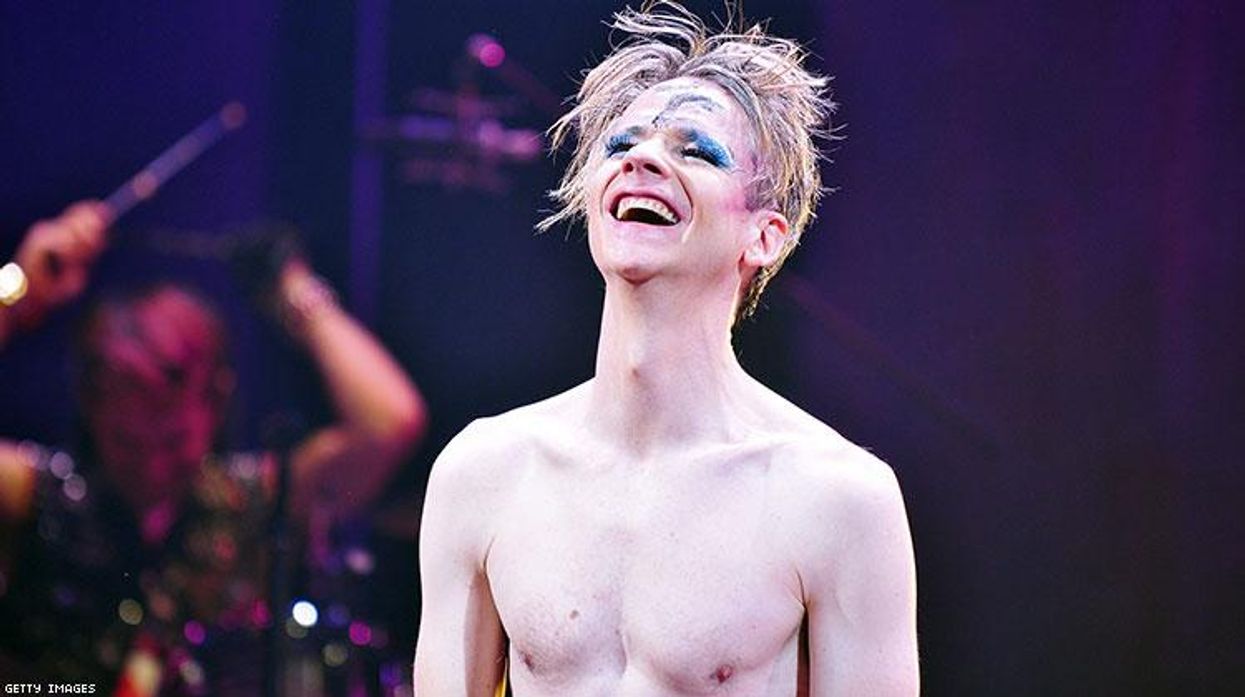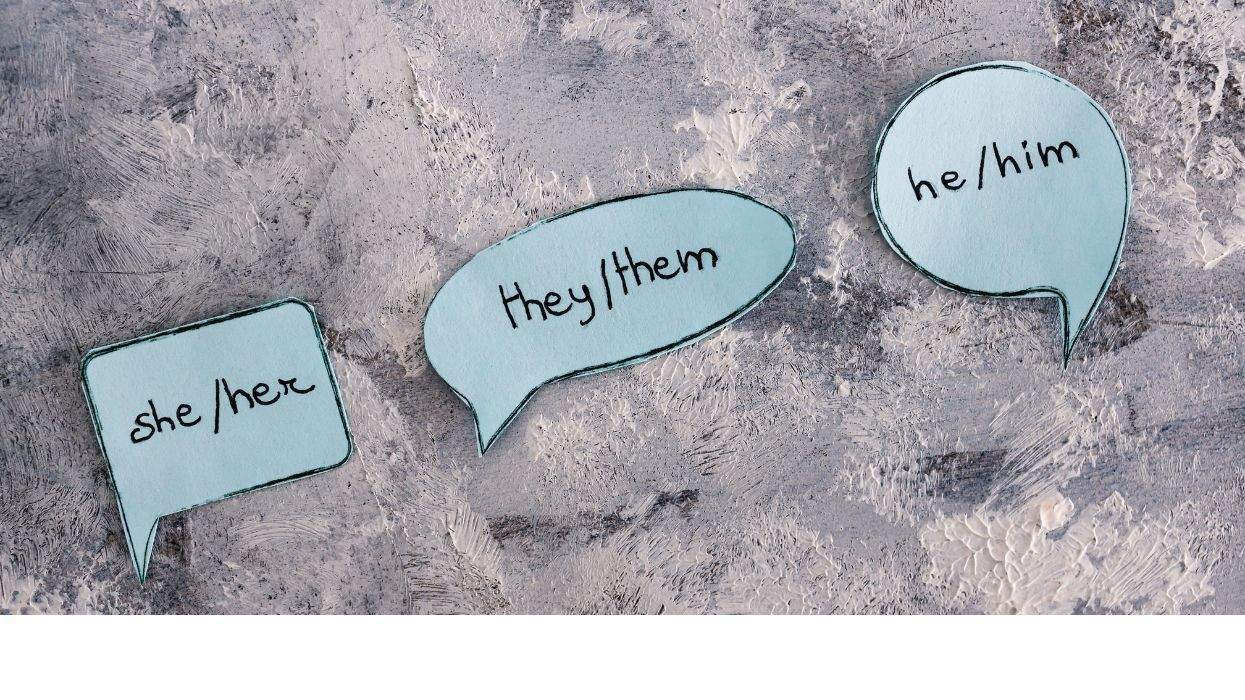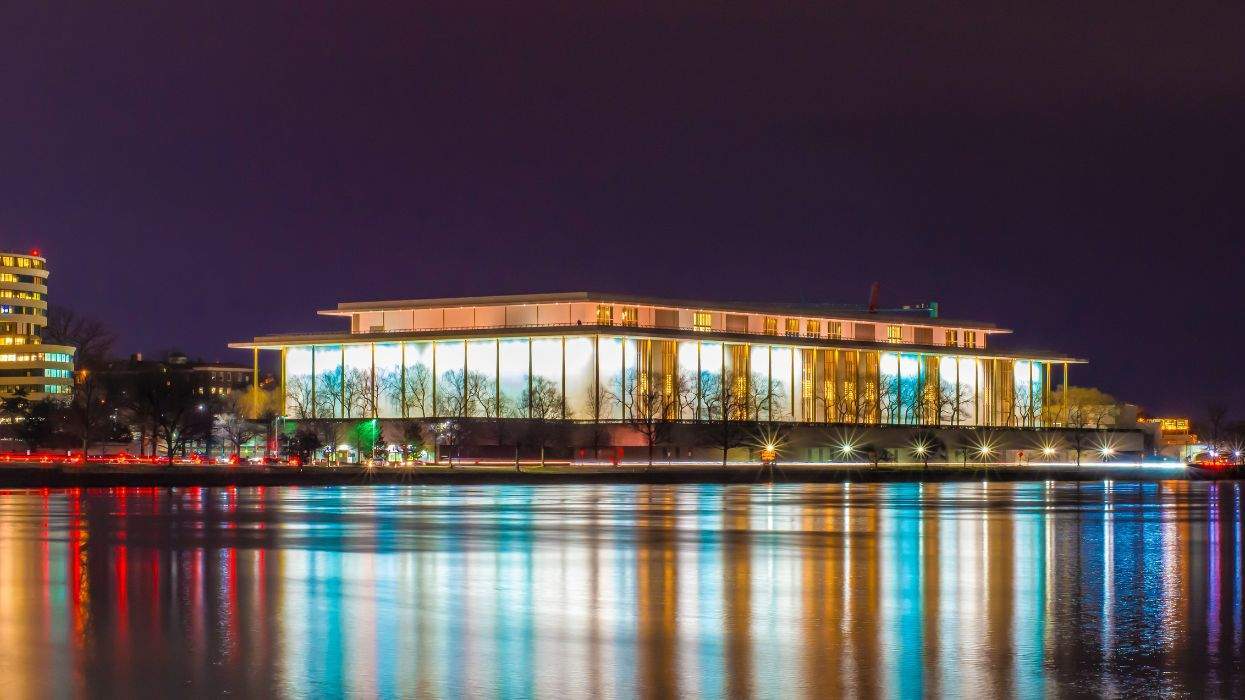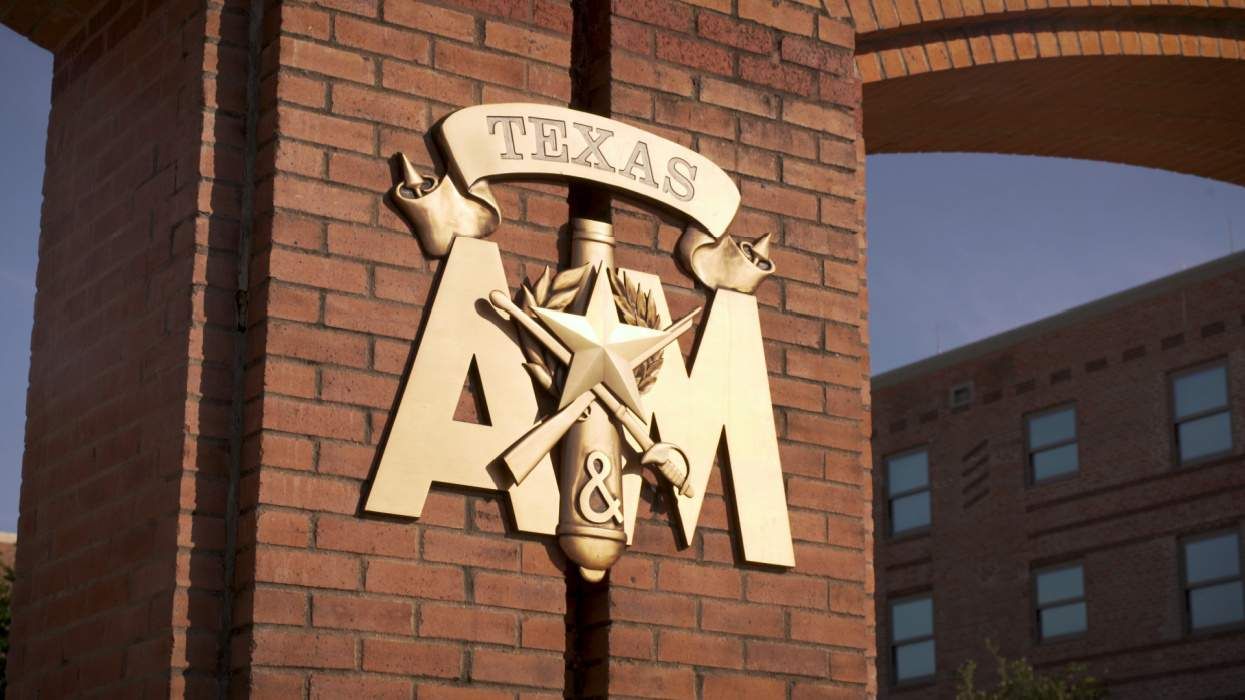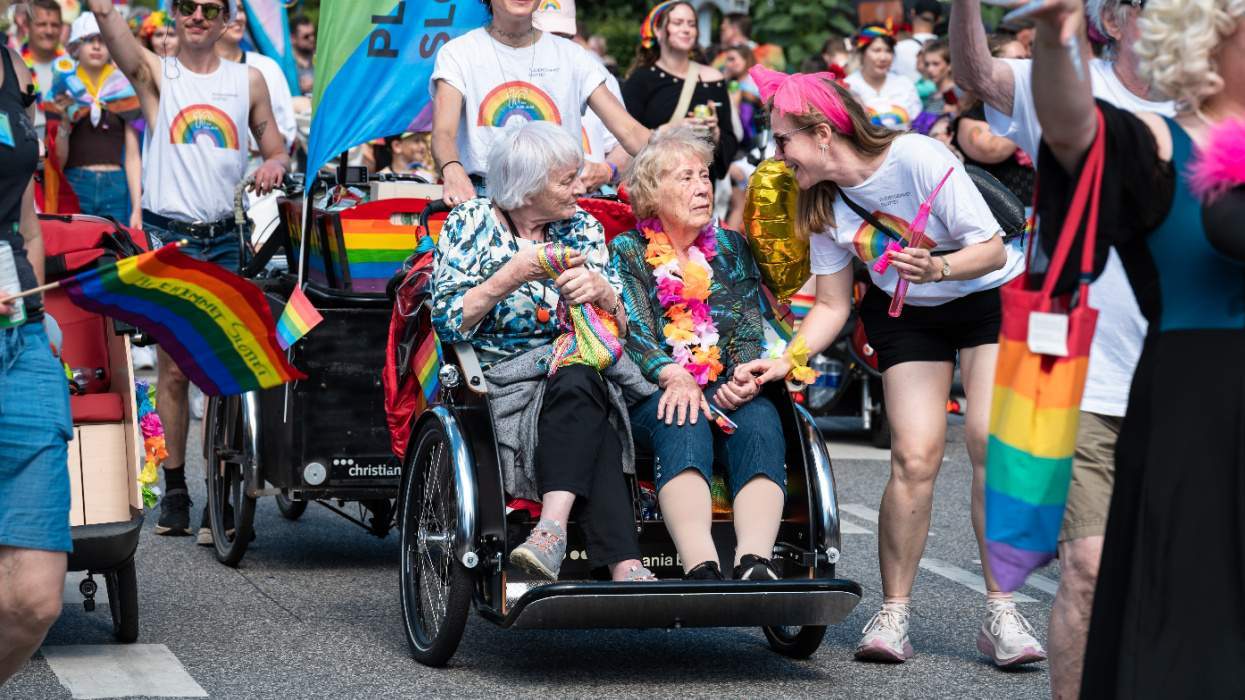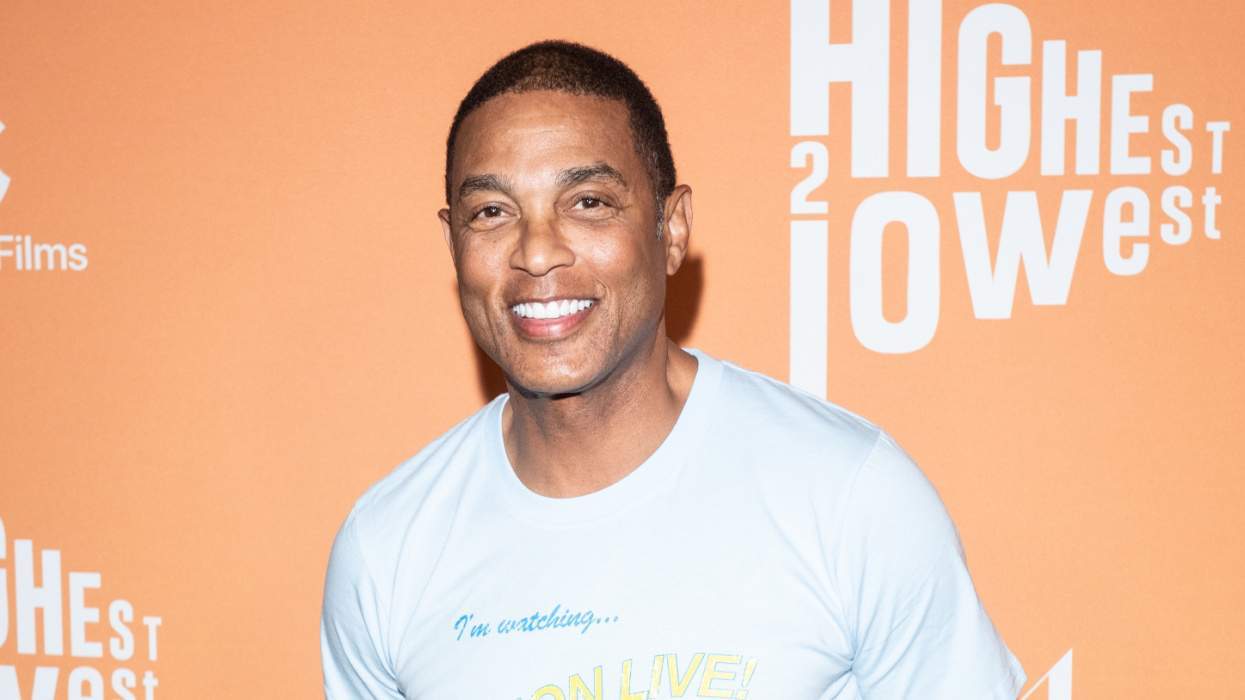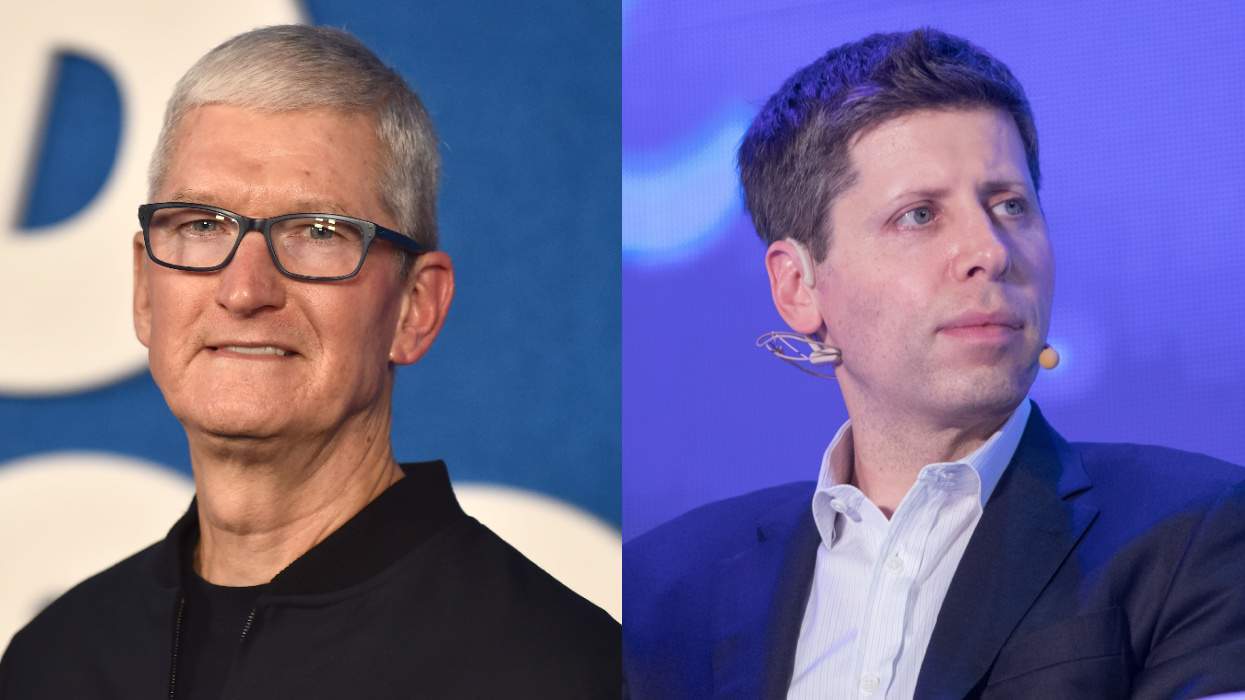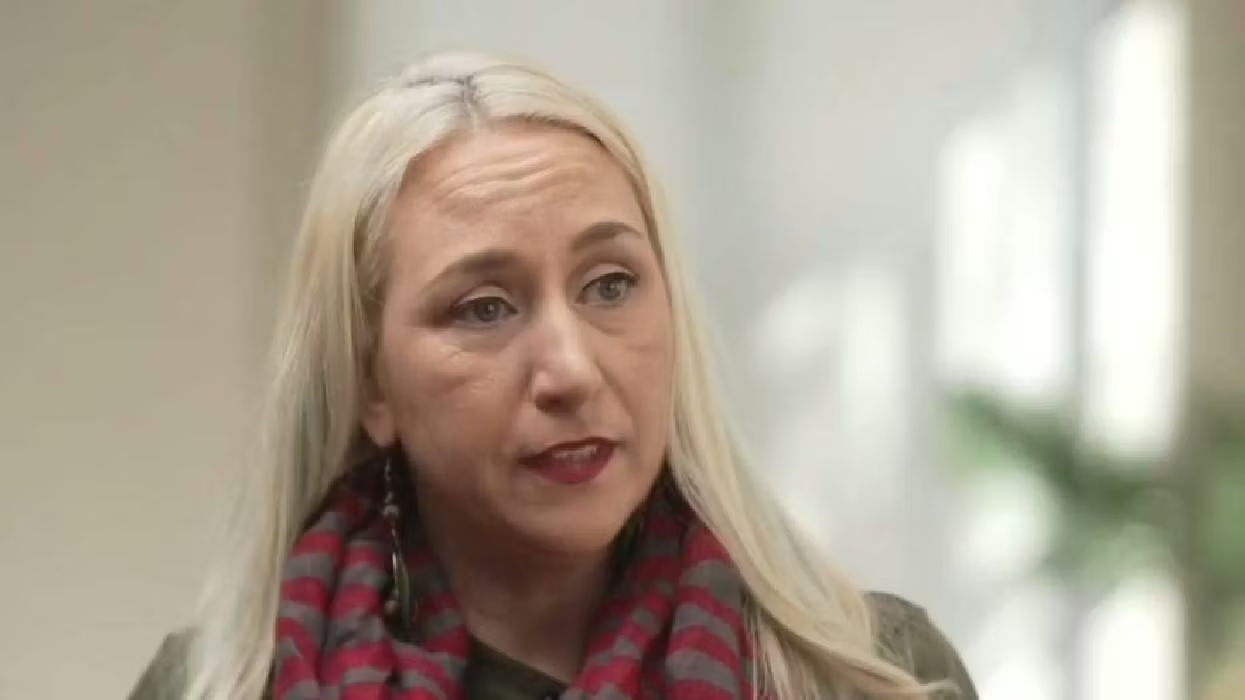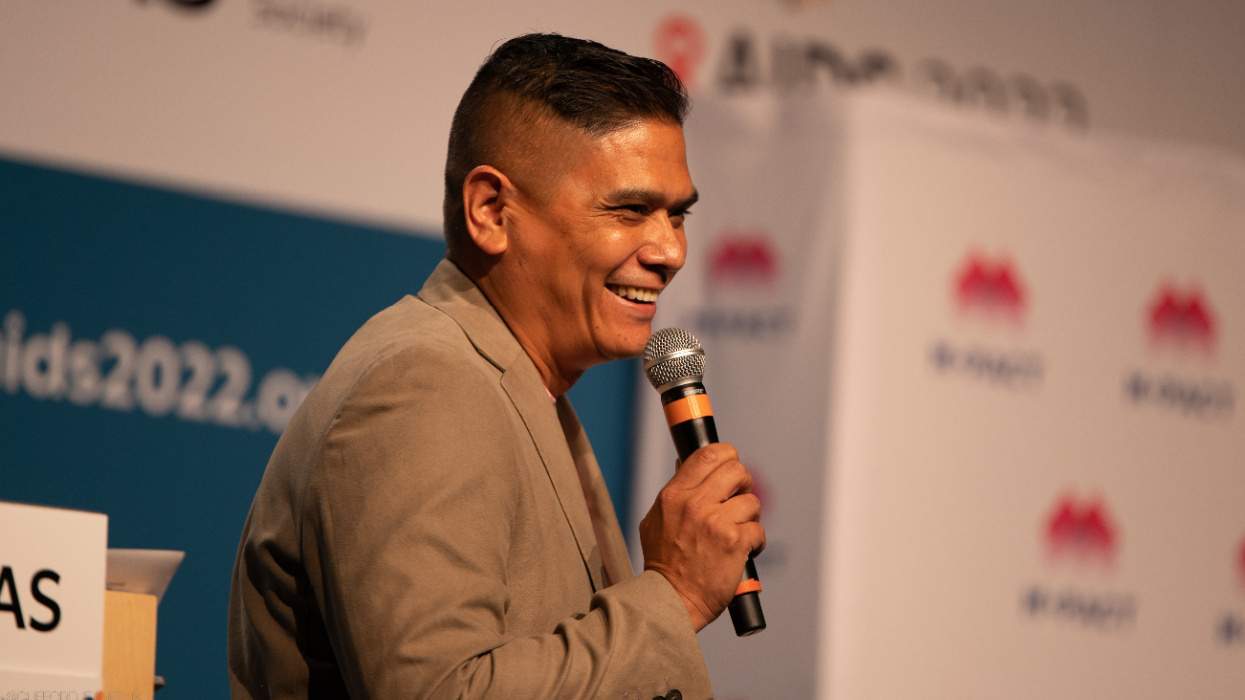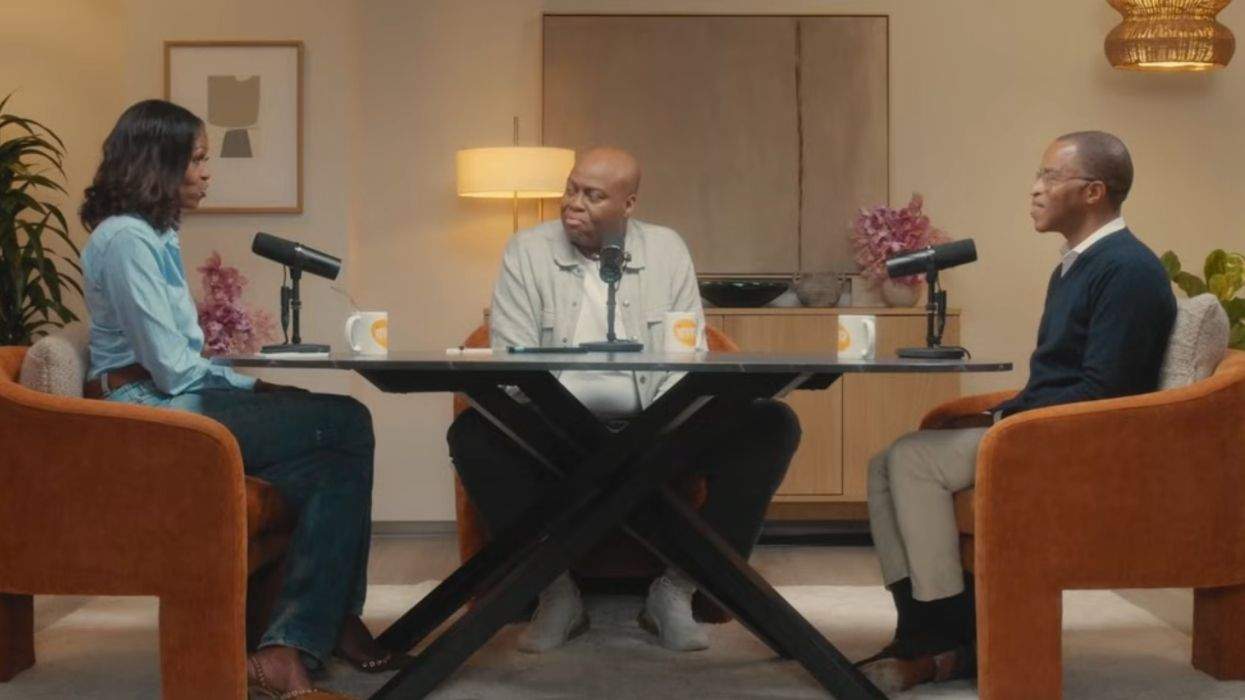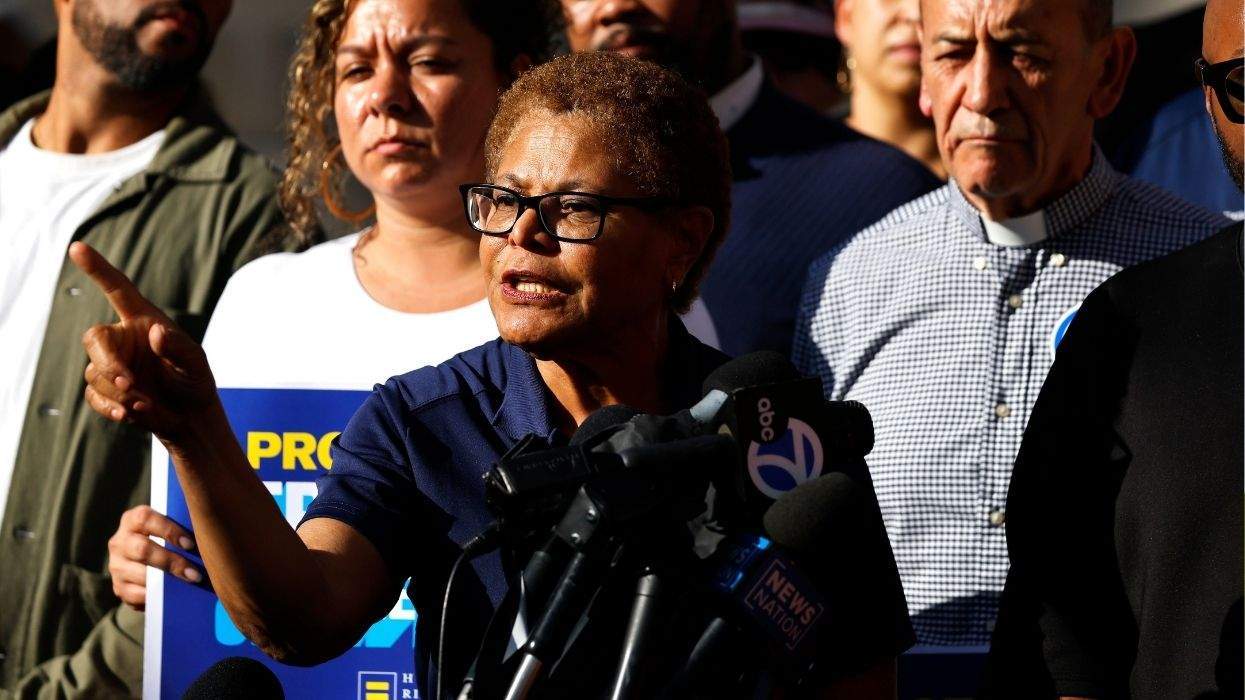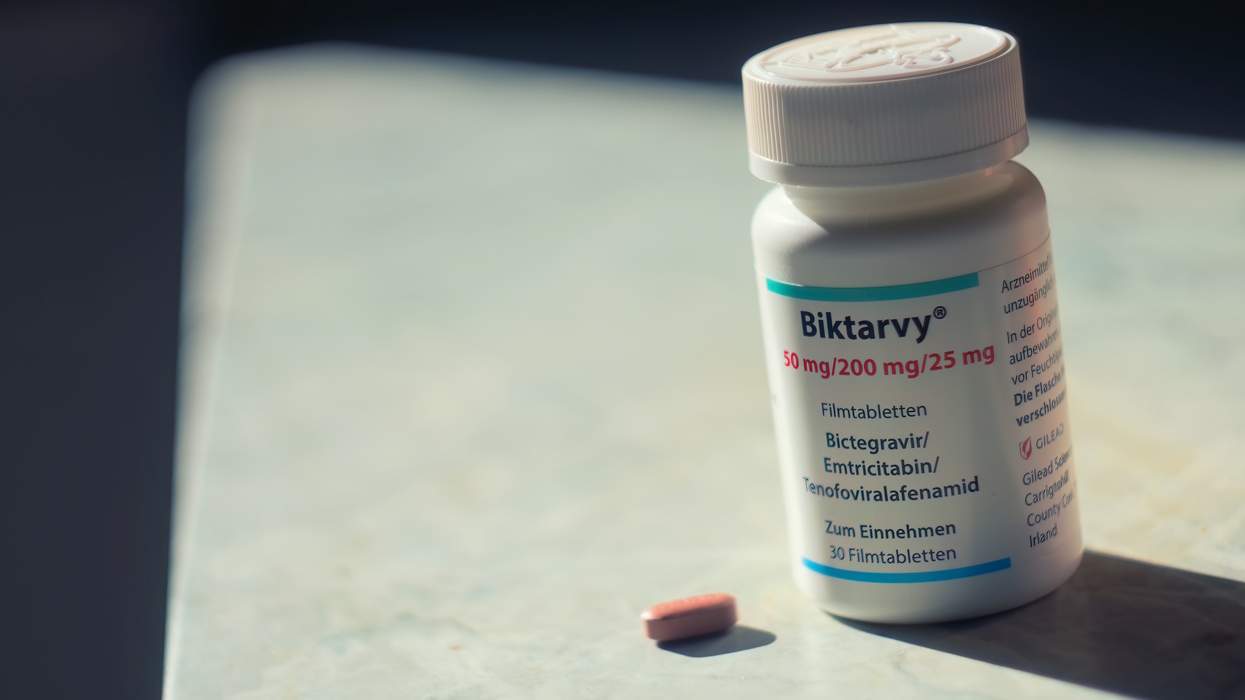Hedwig and the Angry Inch has continued to captivate its fans since it first premiered off-Broadway in 1998. "Everyone can relate to reinvention, to self-definition, to finding out who you are, and letting go of society's rules about gender," says the show's creator and star, John Cameron Mitchell.
In recent times, as our collective understanding of gender and sexuality has grown, so too has our perception of the gender of Hedwig, the main character who's forced into what she describes as a botched sex change. The character has connected to fans across the gender spectrum, but speaking to the LGBTQ&A podcast, Mitchell clarifies that he didn't originally think of Hedwig as a trans character. "The trauma wasn't really a trans choice of finding yourself and defining yourself because the character was raped and mutilated and forced into a gender reassignment against their will, which is not exactly a trans fairy tale...it's more like someone having a forced medical procedure from a communist government."
On the LGBTQ&A podcast this week, John Cameron Mitchell talks about the extraordinary and evolving legacy of Hedwig and the Angry Inch and how playing Hedwig changed his own experience of gender.
You can listen to the full interview on Apple Podcasts here.
Jeffrey Masters: Hedwig came out over 20 years ago. Are you surprised by the life and legacy it's had?
John Cameron Mitchell: Yeah, I mean, we made it for our friends. We were trying to push the form of a musical within the musical world. We knew we couldn't be on Broadway at the time because it was still pretty conservative, but, you know, when you make something you love, your friends tend to love it, and then a few more do.
The fact that we're still talking about it, what do you attribute that to?
I think it's the story of trauma and re-creating yourself after that trauma. In this case, the trauma wasn't really a trans choice of finding yourself and defining yourself because the character was raped and mutilated and forced into a gender reassignment against their will, which is not exactly a trans fairy tale.
It's more like someone having a forced medical procedure from a communist government. It's almost like a circumcision against his will.
But then the real transformation comes after that when the music comes in, the writing, the band, the wig, the makeup, the Hedwig persona, which is built after the trauma. Everyone can relate to reinvention, to self-definition, to finding out who you are and letting go of society's rules about gender.
That's an important distinction, that being trans is something you are or aren't, but it isn't something that can be forced on you.
Hedwig is forced into something by what I call the binarchy, which comes out of the patriarchy. To be a man, you have to do this. To be a woman, you have to do that. To be free, you have to be one or the other. And so I don't think of it in any way as a trans statement. It's a survivor statement. It definitely talks about androgyny as a kind of wholeness. We all have male and female energies. Society defines them differently, but we all have those energies in us. All of us. And the binarchy requires you can define yourself as one or the other, and some more courageous people are saying, "No, I'm myself. I'm a gender of one. I'm nonbinary."
Is that trans narrative that's placed on the character something we've only done in recent times?
Since we developed it in '94, there's been a lot of changes in society for the better. Since then, people who identify as trans, as nonbinary, as queer, as straight, have all let us know that the story was useful in their own journey of finding themselves.
How has working with this material for so long affected your own experience of gender?
Before playing Hedwig, I was very scared of drag because I was scared of my feminine side. I was even not attracted to feminine men. And after literally the first gig of Hedwig, it opened me up completely. I suddenly was much less afraid of things.
I found feminine guys, masculine women attractive. It's a very healthy thing, role-playing. It's not always the most politically correct thing now because you're not allowed to tell anyone's stories but your own. And in fact, autobiography may be the only safe form left, with trigger warnings and consent waivers, of course.
I know you're joking, but it can feel like that.
It's annoying to me because we all know there's a difference between appropriation, which is plagiarism, and being influenced by something and taking that vernacular into a new place.
The bad artist just imitates and plagiarizes. But we begin by imitating our heroes. And mine are people of different genders and different races and different nationalities, and I am the sum of all those people that taught me. Hedwig is another tool for other people to use and imitate, and anyone can play Hedwig.
To me, it shouldn't just be male or trans or female. It should be all. It is a mask that you put on. It is drag. We all do drag, intentionally or not. And the intentional one is very useful.
After the Hedwig movie came out, you quit acting. Was that an official thing or did you just stop accepting roles?
I think I just stopped accepting roles. I didn't say, "This is forever." I was just burnt out. I'd used up everything I wanted to do as a performer and was much more into the writing and directing.
Did you feel like Hollywood didn't know what to do with you?
Well, that's the case too. And I didn't know what to do with them. So I just went on and did my stuff. Actually, that's not true, because after Hedwig, I got a ton of offers to direct Hollywood movies and theater. I was offered to direct Rent on-screen, Memoirs of a Geisha. You know, there was a lot of things.
But it was Lena Dunham actually texting me that got me back to acting in Girls, which I was nervous about. But she let me rewrite my lines, so that made me feel better.
Does it feel good to be acting again?
Yeah, but it's not anything that's vital to me, you know.
What is vital to you?
Well, Shrill, being in that show, at first it was just a money job because I had to pay for my mom's health care and that was bleeding me dry because our country doesn't take care of its own. But it turned out to be a show that I love, with great people, so I'm very grateful to be part of it. I love its message. I love the money I get from it.
If acting is not exciting now, what is?
It's writing. It's songwriting now. Bryan Weller, my composer on Anthem, broke my fear of writing songs because I don't play an instrument. He said that's irrelevant. We can write together. So for the first time, I co-wrote the songs. I like to try new things and I get bored if I just do one.
It was a great privilege to be gay. Otherwise, I'd probably be very boring and unhappy and unexamined. So being queer offers vistas, you know. Part of being queer is like, Oh, there's somewhere else to go.
We are free as queer people, and there are places to go to find ourselves. That saved me, you know. Rock and roll saved some people. Being queer saved me. If you're being told that you're going to hell and you know that that doesn't work for you, you might go, Hmm, maybe there's some other things I'm being told that aren't right either. So you examine everything you're taught.
All of those things that we're taught by our friends or even by society need to be questioned and vetted. That is an advantage, and empathy comes from being an outsider. Woke without empathy is death. It's nothing. They have to be hand in hand. They can't be about just making rules. It has to be about caring.
Your mom was an anti-abortion activist. You're pro-choice. When you realized that you didn't agree with her on that, did that make you question what other values she raised you with that you don't agree with?
You know, there were wonderful people who were friends with my mom. And I would say, nobody wants abortion. No one wants a high rate of abortion. What we want is planned pregnancies and the option to terminate when things go wrong. But that requires sex education, birth control, and other things.
Abortion rates have gone down. So has rates of people having sex. Young people are not having sex the way they used to because of the internet. I really believe because of the internet.
What is the connection there?
Because life is messy. People are behind screens and they don't even want to meet up. They're jerking off online, if they're men.
You think gay guys would be the last ones to stop having sex, but there is a kind of, you know, panic about real-life events.
We know what to do with a shirtless torso on our phone screens, but we're less comfortable when it's in person in front of us.
Yes. It's a kind of erotophobia that comes out of technology. I also see a P.C. thing. The kind of censorship from the left that annoys me. Obviously, it's coming from grievance, real grievance, and a lot of that grievance has to be called out.
But to actually censor and stop and kill people's careers because you don't agree with it, it to me is very un-American and ultimately you're just using the tactics of the people that you consider the oppressors.
Have people tried to do that with you?
No. It's definitely happened to friends of mine who've lost their careers because of one stray remark that was out of context. I've seen it. And it's disturbing to me because as Trump laughs in the White House, we tear each other apart. We shred our allies. We're rats in a cage and it's because we're desperate to do something, to fix something when the powers that be seem immovable.
Most people are sheep, including queer people. And maybe in some ways, I think gay men, specifically, are more sheep-like than straight people. You know, if you're gay you have to like that and you have to go to Fire Island and da-da-da. And you have to like RuPaul's show. I don't like to be told what to do. I understand a gay necessity for tribes, you know, to feel part of. But are you investigating what you really love and need?
You can listen to the full LGBTQ&A interview on Apple Podcasts or Spotify.
*This interview was originally recorded in June of 2019.
LGBTQ&A is The Advocate's weekly interview podcast hosted by Jeffrey Masters. Past guests include Pete Buttigieg, Laverne Cox, Brandi Carlile, Billie Jean King, and Roxane Gay.
New episodes come out every Tuesday.
